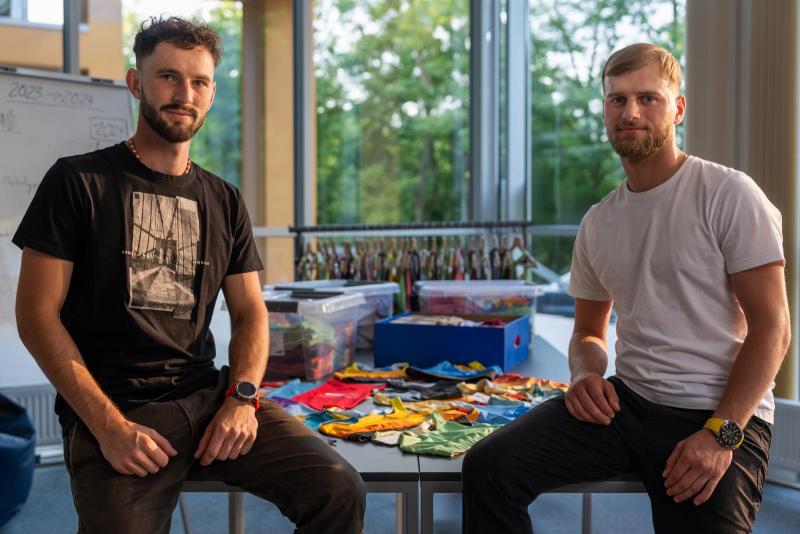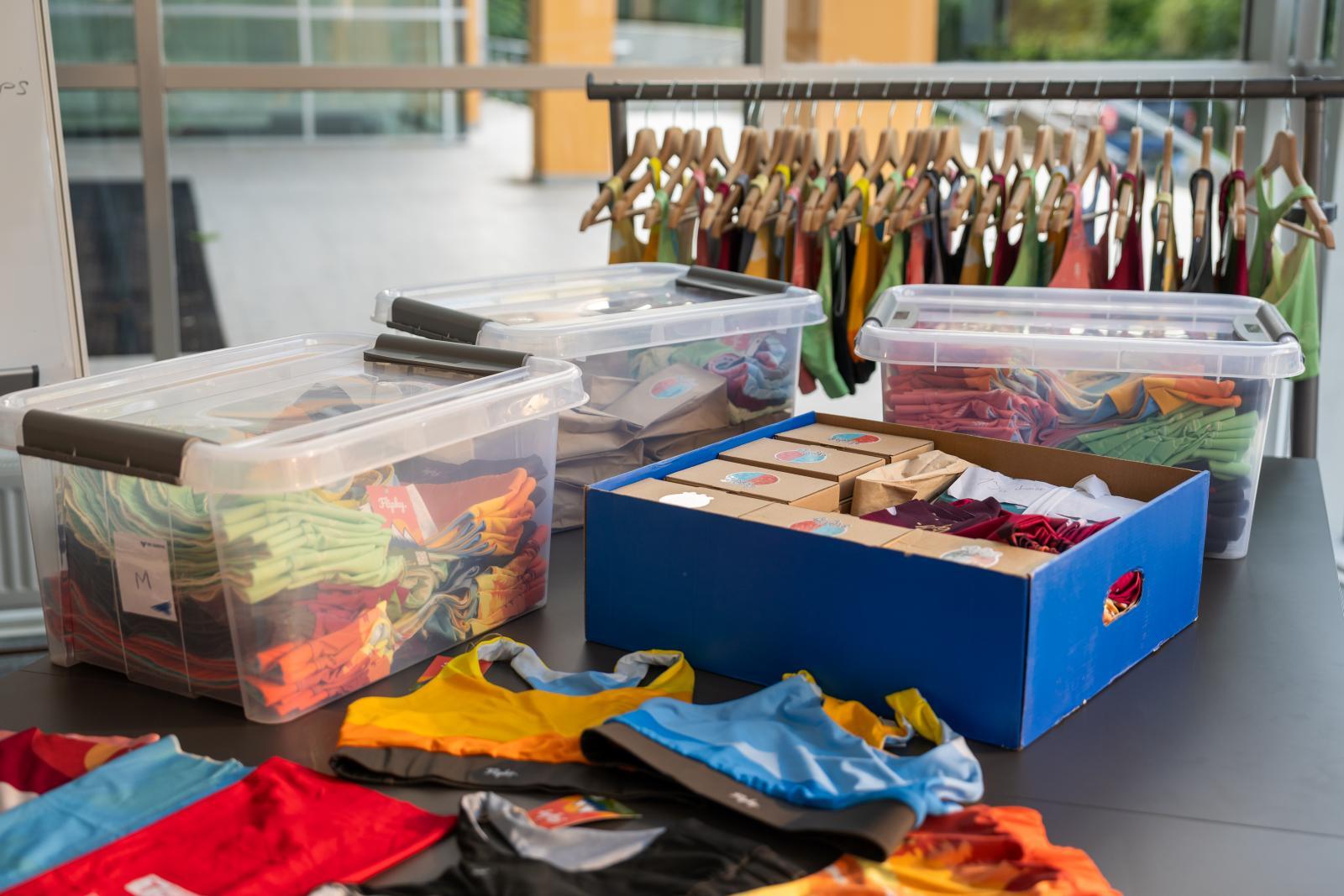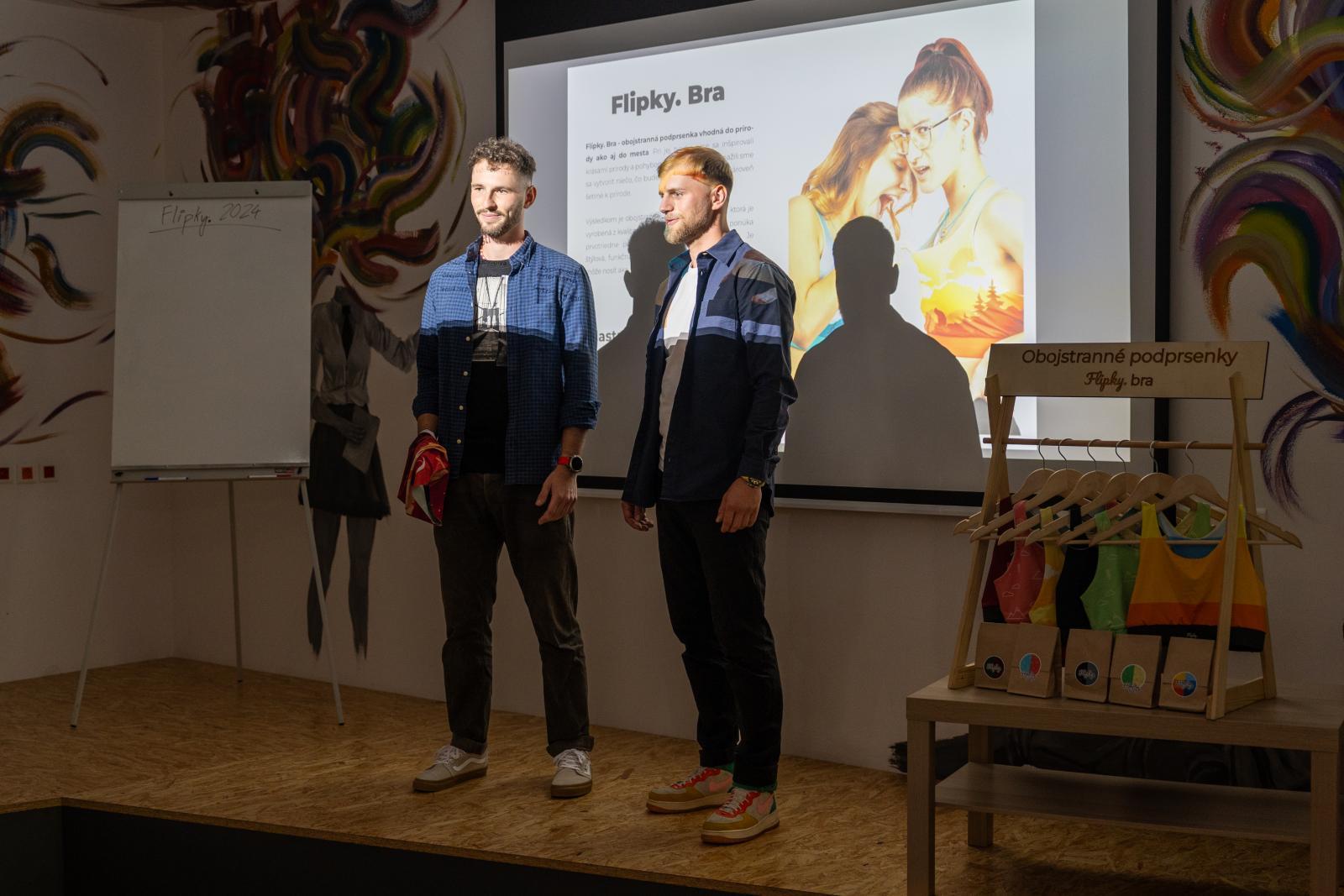People
The reversible clothing from Flipky can be worn in the city or in the mountains. It saves the environment and your wallet

Šimon Lipták and David Maroši, graduates of the Entrepreneurship and Small Business Development programme at the FBM (Faculty of Business and Management) BUT (Brno University of Technology), decided to fight against the so-called fast fashion trend. Back in school, they started a company called Flipky and offer functional clothing that is reversible and has multiple uses. So far, they are only targeting the Slovak market, but in the future they plan to break into the Czech market as well.
In their first semester, Šimon Lipták and David Maroši had to invent their own business. According to them, this is the principle behind the teaching of the Entrepreneurship and Small Business Development programme at the FBM BUT. “The whole idea is based on students starting to develop a business idea and gradually learning everything from that. During the three years of their bachelor's studies, they try to start a business,” says Šimon Lipták.
Initially, they were unable to find the right product or service to offer. “We tried different things, but nothing was right. Gradually, however, we came to what is today the company Flipky. We originally came up with reversible shorts. It was supposed to be a gift product that would be sold at Christmas and for birthdays. And people would have it for fun,” Lipták says. But once they developed the idea in more detail, they found that it would not be financially worthwhile. “It didn't make much business sense because it would be very expensive for people to buy it just for fun,” he notes.
Fewer clothes in the wardrobe and less frequent washing
However, they were intrigued by the whole idea of the reversibility of clothing, which they decided to stick to. “We have found that it has many positives. For example, they can reduce the environmental impact of a product by up to 50 percent,” points out Šimon Lipták, adding that they have also taken the whole thing to the next level with their choice of material. “We sew from recycled polyester,” he adds.

They turned the school project into a real company and the brand Flipky was born. “Our vision is to be a sustainable outdoor brand,” says David Maroši, the other co-founder. According to him, the clothes are designed to be suitable for both the city and the mountains. “It's nice and functional,” he points out, adding that it's no accident either. According to the founders of Flipky, this reduces the number of pieces of clothing that one must own.
Reversible clothing despite manufacturers
Although the start-up of their business looks very smooth, Lipták and Maroši recall how they could not, for example, find anyone who would be able and willing to make things for them. “Especially because of the printing, everybody told us it couldn't be done. But as good entrepreneurs, we thought it would work,” laughs Maroši. They approached dozens of companies who turned them down. “Then an older gentleman from one company told us to come. That he'll show us why it's not working. So we came and found out that it was possible,” says Maroši.
The first product was a double-sided scarf. “It was the easiest thing we could start with. And our supervisor, associate professor Zich, advised us to do so. We built the whole product in two weeks, made about a hundred scarves and started selling them through a Google form. It was before Christmas and we sold about sixty of them in a while. This was a key moment for us when we decided to go full on into business,” says David Maroši.
Although entrepreneurship itself is a challenge, according to Šimon Lipták and David Maroši, the school has prepared them well. “We are still not where we want to be. There are many ways we could build a product, make a cut. It's challenging to choose cuts that people will like and that will sell. But we were taught the right mind-set at school. That it's all about wanting. The rest you learn. We can solve problems. We know how to look at business. We must not be afraid to test ideas and so on,” says Šimon Lipták.

David Maroši agrees and adds that thanks to this they did not even feel the difference between the school project and real business. “We do the same thing we did in school. The only difference is that now we are not presenting to teachers, but to investors,” he notes with a smile.
Attracting investment is the biggest challenge that founders of Flipky now face. In addition, they would like to gradually expand the range of leggings and T-shirts and the Slovak brand plans to expand into the Czech market. They then discuss the possibilities of cooperation with their alma mater. “Our programme helped us a lot in the beginning. We are therefore discussing the possibilities of cooperation so that we can give something back and pass on some of our experience to current students, for example,” concludes David Maroši.
(zeh)
I still need a driving engine in my life, the former rugby player who today competes in bobsleigh says
ARGO underwater: Prototype of student submarine on display at IDET Fair
She took up sport shooting when she was almost an adult. Today, as a student at the Faculty of Business and Management at BUT, she is a European champion.
Majáles returns after 2 years, royal candidates from BUT are ready to fight
The first woman at the head of the formula team has a great start